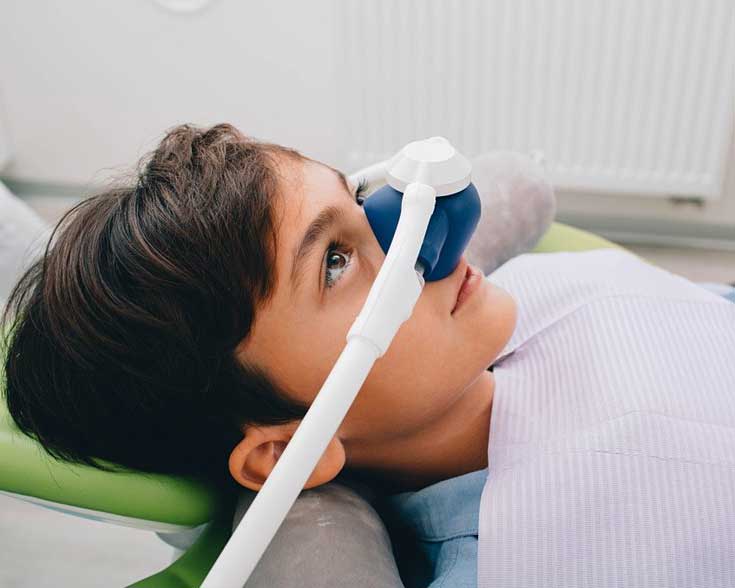
The Fear-Free Way to a Healthy Smile: Understanding Sedation Dentistry
Are you one of those who get anxious at the mere thought of sitting in a dentist’s chair? Does the idea of drills and needles make your heart race with fear? If so, you’re not alone. Dental anxiety is a common problem that affects millions of people worldwide. However, sedation dentistry offers a safe and effective way to overcome this fear and get the dental care you need. In this blog post, we’ll explore what sedation dentistry is all about and how it can help you achieve a healthy smile without stress or anxiety. So sit back (or lie down!) and read on to learn more!
What is Sedation Dentistry?
Sedation dentistry is a specialized form that uses medication to create a relaxed state where the patient can receive dental treatments. It allows the dentist to perform procedures with little or no anxiety for the patient, leading to a healthier smile.
There are several types of such dentistry, each with its benefits and drawbacks. General anesthetics, such as Propofol and etomidate, are typically used as sedatives during dental procedures. These medications make the patient drowsy but do not cause complete unconsciousness or coma. Sedative hypnotics, such as chloral hydrate and methaqualone, offer even more relief from anxiety and pain while causing complete unconsciousness. However, these medications are known to have side effects, including memory loss and impaired coordination.
Narcotic analgesics, such as fentanyl and morphine, work similarly to general anesthetics but without the drowsiness side effects. These drugs are highly effective at relieving pain but can also lead to deep sleep if taken in high doses or abused. In addition, anti-anxiety medications like buspirone may be used with narcotic analgesics to relieve anxiety without any of the narcotic’s side effects.

How Sedation Dentistry Works
It is a type of dental care that uses anesthetics and tranquilizers to make patients more comfortable during dental procedures. These medications allow the dentist to perform more complex tasks, such as removing teeth, without causing any pain or anxiety for the patient.
It aims to provide patients with a safe, comfortable experience while receiving routine dental care. The anesthetics and tranquilizers used in sedation dentistry can help reduce anxiety and fear related to dental procedures. Additionally, they can help improve the overall quality of the patient’s dental care.
Several different types of sedation dentistry are available, each with its own benefits and drawbacks. General anesthetics (such as propofol) are most commonly used in sedation dentistry. They work by blocking nerve impulses, which renders the patient unconscious. This type of anesthesia is generally considered safe and effective for most routine dental procedures. However, it has some limitations: General anesthetics may cause short-term memory loss, difficulty breathing, and even death in rare cases. In addition, they have a limited duration (usually about 2 hours), so patients must be carefully monitored throughout their treatment.
Another anesthetic used in sedation dentistry is lidocaine hydrochloride (Xylocaine). Lidocaine blocks nerve impulses at a different point than general anesthetics; it does not render the patient.
Benefits of this Dentistry
Sedation dentistry is a great way to reduce anxiety and allow patients to enjoy a healthy smile. In addition, patients may experience less pain during and after dental procedures, and sedation dentistry can be affordable for those with chronic dental conditions or who are afraid of dental procedures. There are many benefits to this Dentistry, including:
Reduced Anxiety: Many people feel nervous about dental procedures, which can lead to increased anxiety levels. Sedation dentistry allows patients to relax before and during their appointment, which can help them feel more confident and comfortable. Many people feel nervous about dental procedures, which can lead to increased anxiety levels. Sedation dentistry allows patients to relax before and during their appointment, which can help them feel more confident and comfortable.
Reduced Pain: While most dental procedures cause discomfort, sedation dentistry can effectively reduce that pain. It makes it ideal for patients who experience chronic pain or fear of dental care.While most dental procedures cause discomfort, sedation dentistry can effectively reduce that pain. It makes it ideal for patients who experience chronic pain or fear of dental care.
Reduced Recovery Time: In addition to reducing the pain experienced during a procedure, sedation allows patients to recover more quickly afterward. It means they can get back on their feet sooner rather than spending longer in the dentist’s office recovering from the procedure.
Dental Anxiety and Sedation Dentistry
This is a type of dentistry that uses anesthetics to make patients feel relaxed and comfortable. These anesthetics can be used in different ways, including general anesthesia (in which the patient is completely unconscious), sedation (in which the patient is moderately sedated), or local anesthetics (which numbs only the area being treated).
Dental anxiety is a common worry for patients who are considering dental procedures. However, many ways exist to reduce anxiety before and during a dental procedure. Dentists will often recommend discussing your fears and expectations with them in advance. They may also offer specific techniques to help you relax, such as guided imagery or Meditation techniques.
If you are experiencing significant dental anxiety, your dentist may recommend using sedation dentistry. Sedation dentistry is a safe and effective way to reduce anxiety and allow you to have a healthy smile.
Source: Atlanta Dental Spa
If you’re looking for a way to get a healthy smile that doesn’t involve any pain, Sedation Dentistry may be the answer. You can enjoy your dental appointment without fear or anxiety. By providing you with the comfort and security of knowing that everything is going to be okay, it provides the foundation for a healthy smile. However, it is always advisable to consider the pros and cons of this dentistry before taking any decision. Thanks for reading!



